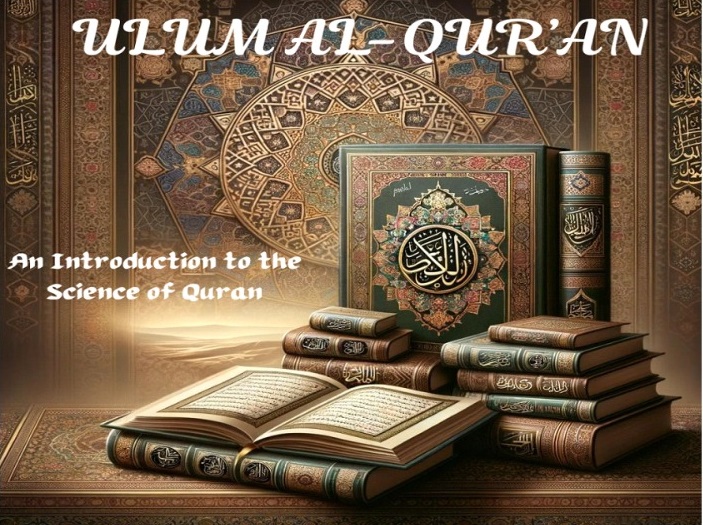This course is designed to explore the following topics and more:
Introduction to Uloom ul Quran: Overview of the sciences of the Quran, including its definition, importance, and objectives.
Revelation of the Quran (Wahi): The process of revelation, its stages, and the modes of revelation received by Prophet Muhammad (PBUH).
Compilation of the Quran: The history and process of the Quran's compilation during the time of the Prophet Muhammad (PBUH) and the Caliphs.
The Miraculous Nature of the Quran (I'jaz al-Quran): Discussion on the linguistic, literary, and thematic inimitability of the Quran.
Tafsir (Exegesis): Different methodologies and approaches to Quranic interpretation, including classical and contemporary Tafsir.
Makki and Madani Surahs: Distinctions between the surahs revealed in Mecca and those revealed in Medina, and their respective characteristics
Asbab al-Nuzul (Occasions of Revelation): Context and circumstances surrounding specific revelations.
Qira'at (Recitations): The various recognized modes of Quranic recitation and their significance.
Abrogation (Naskh): Concept and instances of abrogation within the Quranic text.
Quranic Grammar and Rhetoric (Balagha): The grammatical and rhetorical features of the Quran.
Thematic Studies (Mawdu'i Tafsir): Examination of specific themes and topics within the Quran.
Preservation of the Quran: : Methods and efforts to preserve the Quranic text throughout Islamic history.
Scientific Miracles in the Quran : Analysis of verses that align with modern scientific discoveries.






